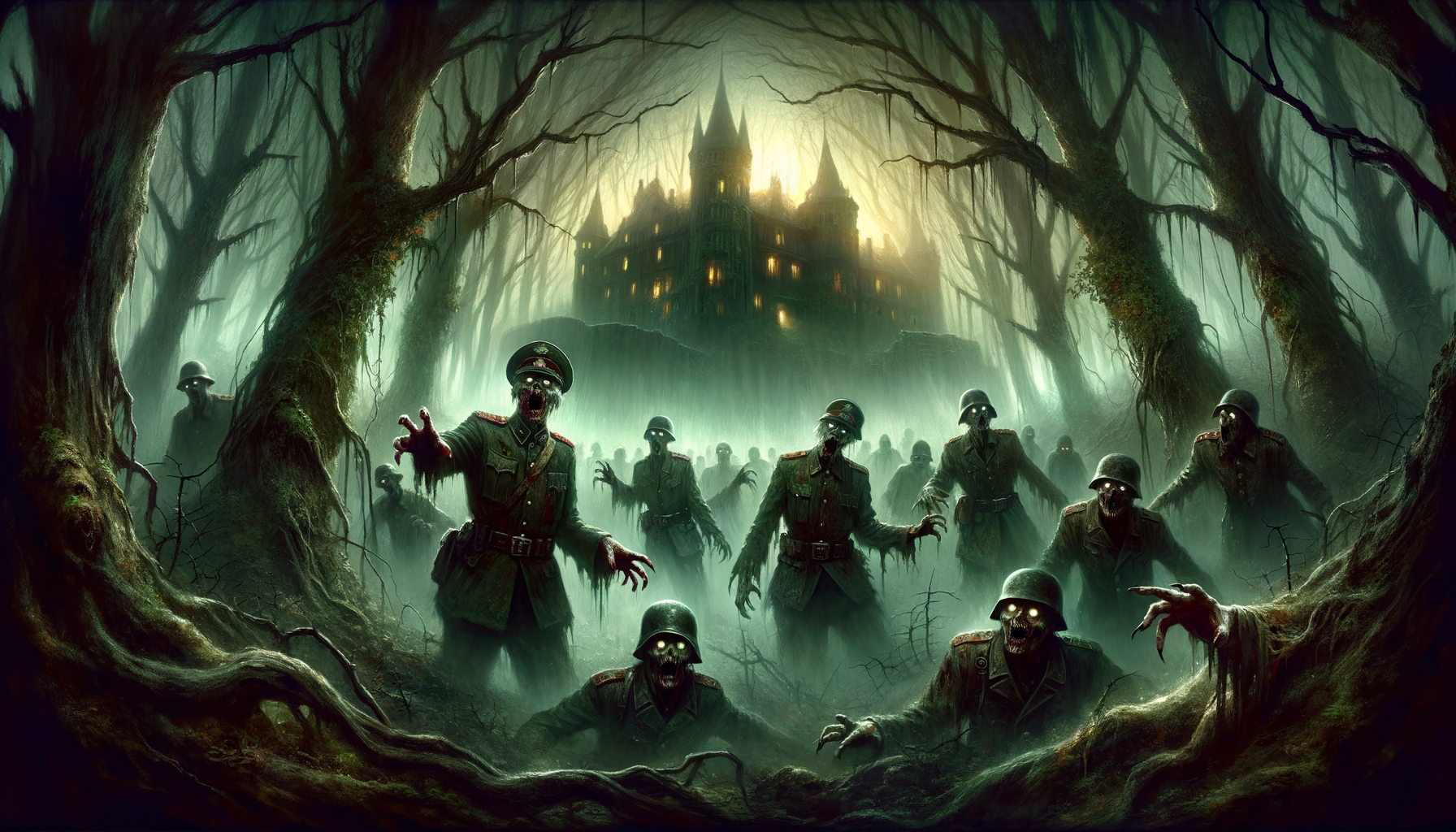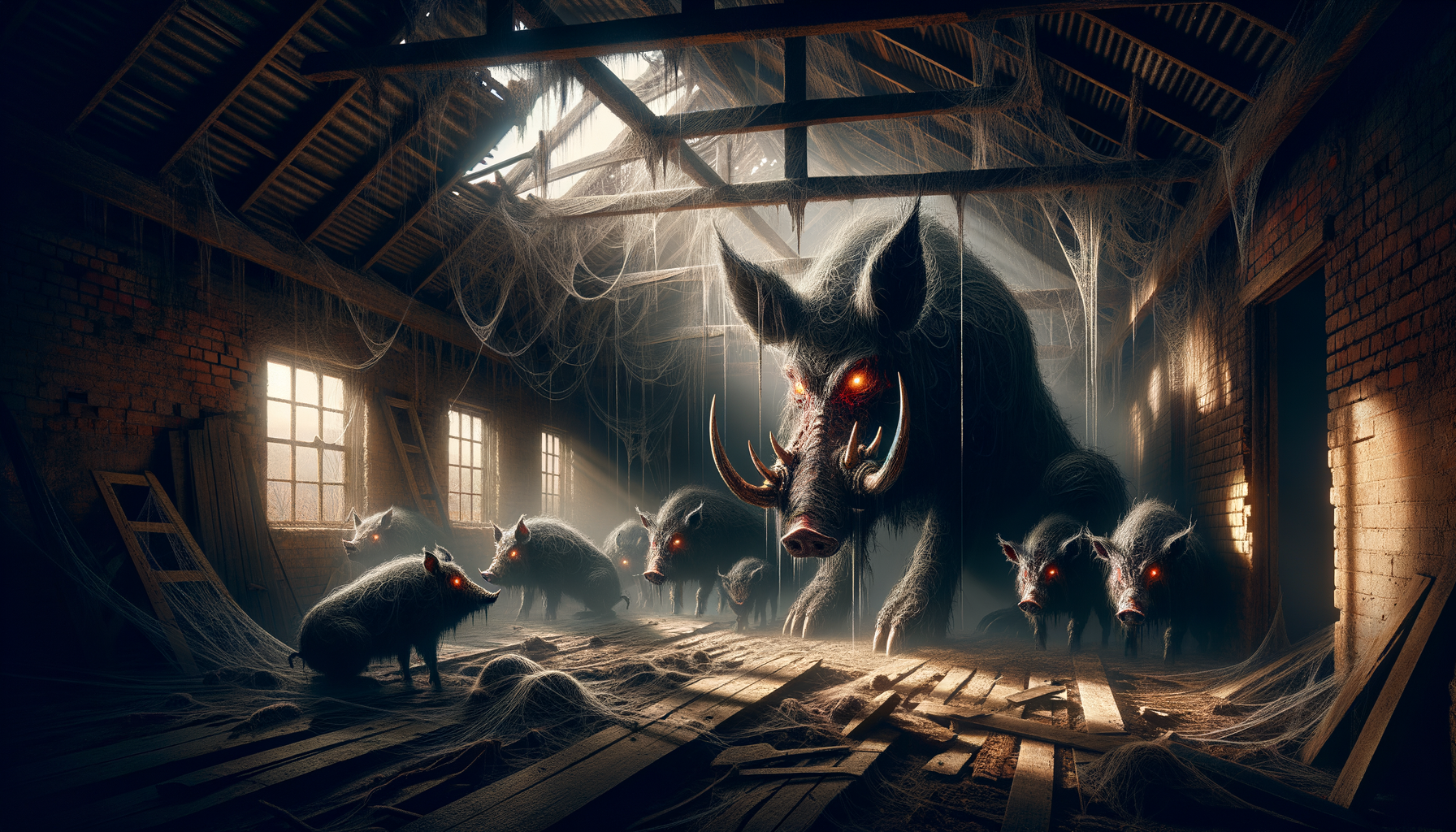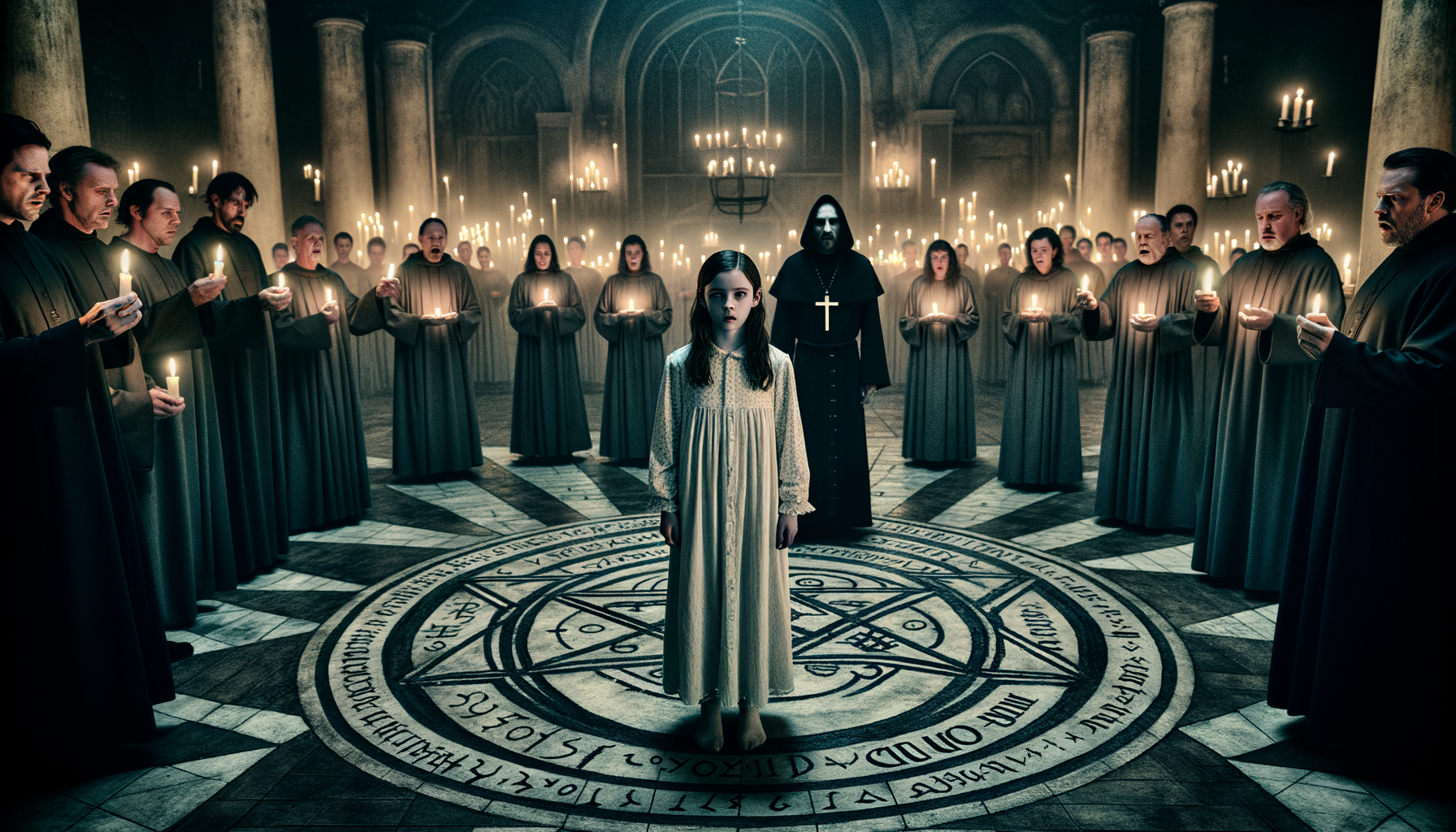Explore the eerie influence of NAZIs in horror movies and books, their impact on the genre, and why they remain a staple in 2024. Discover spine-chilling plots and historical contexts!
Horror has always had a unique way of seeping into our deepest fears, but did you know that NAZIs have been a recurring theme in the genre? From classic films to modern novels, the presence of NAZIs in horror stories brings a chilling, historical undertone to already terrifying tales. Whether it’s the relentless pursuit of evil or the haunting echo of real-world atrocities, NAZIs in horror add an unmistakable layer of dread. Let’s dive into the dark corridors of these narratives and uncover why this unsettling theme continues to captivate audiences in 2024!
Historical Context of NAZIs in Horror Fiction
Exploration of Early Examples of NAZI-Themed Horror in Literature and Film
The use of NAZIs as villains in horror fiction dates back to the immediate aftermath of World War II. Early examples can be found in both literature and film where NAZI antagonists were often portrayed as the ultimate embodiment of evil. This trend emerged as a direct response to the atrocities committed during the Holocaust and World War II, which left an indelible mark on global consciousness.
How Historical Events Shaped Horror Storytelling
Historical events, particularly the horrors of the Holocaust and the brutality of the NAZI regime, have profoundly shaped horror storytelling. Writers and filmmakers tapped into the collective trauma and fear, using NAZIs as symbols of absolute malevolence. This period saw a surge in stories where NAZIs were not just enemies but monstrous figures, often engaging in supernatural or pseudoscientific experiments.
The Evolution of NAZI Villains Over the Decades
Over the decades, the portrayal of NAZI villains has evolved. Initially depicted as straightforward embodiments of evil, these characters have become more complex. Modern interpretations often delve into psychological horrors and the moral complexities of their actions, reflecting a deeper understanding of the historical and human facets of the NAZI regime.
Key Films Featuring NAZIs in Horror
Overview of Seminal Horror Movies with NAZI Antagonists
NAZI-themed horror has found a significant place in cinema, with several seminal films exploring this dark territory. These movies often mix historical facts with fictional elements to create a chilling narrative.
Analysis of Key Movies Like “The Boys from Brazil” and “Dead Snow”
“The Boys from Brazil” (1978) is a notable example, where the plot revolves around a plan to clone Hitler, bringing together elements of science fiction and horror. On the other hand, “Dead Snow” (2009) takes a more straightforward horror-comedy approach with zombie NAZIs terrorizing a group of friends. Both films, despite their different tones, highlight the enduring fascination and fear associated with NAZI villains.
Impact of These Films on the Horror Genre and Audience Reception
These films have had a lasting impact on the horror genre, often pushing boundaries and challenging audiences. The use of NAZIs as villains taps into deep-seated fears and historical traumas, eliciting strong emotional reactions. While some viewers appreciate the cathartic release of seeing such evil defeated, others find the subject matter too disturbing.
Popular NAZI-Themed Horror Novels
A Look at Prominent Horror Books Featuring NAZIs
In literature, several notable horror novels feature NAZIs as central antagonists. Books like “The Keep” by F. Paul Wilson and “Fatherland” by Robert Harris have garnered acclaim for their gripping narratives and chilling depictions of NAZI horrors.
Themes and Tropes Common in These Novels
Common themes in these novels include the exploration of absolute power, the corruption of science and technology, and the supernatural. Tropes such as secret experiments, hidden NAZI enclaves, and undead soldiers frequently appear, blending historical elements with fictional terror.
How Authors Incorporate Historical Accuracy with Fictional Terror
Authors often strive to balance historical accuracy with fictional elements to enhance the horror. This involves meticulous research into the NAZI era, ensuring that the fictional aspects do not overshadow the real historical atrocities, but rather, amplify the horror through a lens of speculative fiction.
The Psychological Impact of NAZIs in Horror Stories
Why NAZIs Are an Effective Horror Element
NAZIs are an effective horror element because they represent real, historical evil. Their actions during World War II epitomize the darkest aspects of humanity, making them suitable antagonists in horror narratives that seek to explore themes of absolute evil and moral corruption.
Psychological Theories on Fear and Evil
Psychological theories suggest that fear of NAZIs in horror stories taps into a collective memory of trauma and the archetype of the monstrous villain. The portrayal of NAZIs in horror often invokes a primal fear of dehumanization and brutality, which resonates deeply with audiences.
Audience Reactions to NAZI-Themed Horror Content
Audience reactions to NAZI-themed horror content are mixed. Some find it a powerful way to confront and process historical trauma, while others feel it trivializes real suffering. The effectiveness of these stories often depends on their sensitivity and respect for historical events.
Modern Trends in NAZI Horror in 2024
New Films and Books Released Recently
In 2024, the NAZI horror sub-genre continues to evolve with new films and books pushing the boundaries of storytelling. Recent releases explore innovative narratives, sometimes blending genres like science fiction and horror to create fresh takes on NAZI villains.
Evolving Narratives and Innovations Within This Sub-Genre
Modern NAZI horror narratives often focus on psychological horror and moral ambiguity, moving away from straightforward depictions of evil. Innovations include exploring alternate histories, where NAZIs have won the war, and the consequences of such a world.
Cultural and Societal Factors Influencing Current Horror Trends
Current horror trends are influenced by contemporary societal issues such as the rise of authoritarianism and the resurgence of fascist ideologies. These factors make NAZI-themed horror particularly relevant, as creators use the genre to comment on and critique modern-day parallels.
Ethical Implications and Controversies
Discussion on the Ethical Considerations of Using NAZIs in Horror
The use of NAZIs in horror fiction raises significant ethical questions. There is a fine line between using historical villains to create compelling narratives and exploiting real suffering for entertainment. Ethical considerations include the potential for desensitization and the risk of trivializing historical atrocities.
Public and Critical Opinions on This Topic
Public and critical opinions on NAZI-themed horror are divided. Some argue that these stories serve as important reminders of historical evils and can educate audiences about the past. Others believe that they can be disrespectful to survivors and victims, reducing complex historical events to mere plot devices.
Balancing Historical Accuracy with Respect for Victims
Balancing historical accuracy with respect for victims is crucial in NAZI-themed horror. Creators must navigate the delicate task of honoring the memory of those who suffered while creating engaging and thought-provoking stories. This often involves thorough research, sensitivity to the subject matter, and a commitment to respectful representation.
Conclusion
NAZIs in horror undeniably evoke a unique, spine-chilling dread, combining the horrors of history with the eerie thrill of fiction. While some may find this theme controversial, it offers a powerful avenue for exploring fear and evil. As we continue to consume horror stories in 2024, NAZIs remain a potent symbol of terror that forces us to confront the darkest aspects of humanity. Ready to delve deeper? Check out our recommended films and books that will keep you on the edge of your seat!




